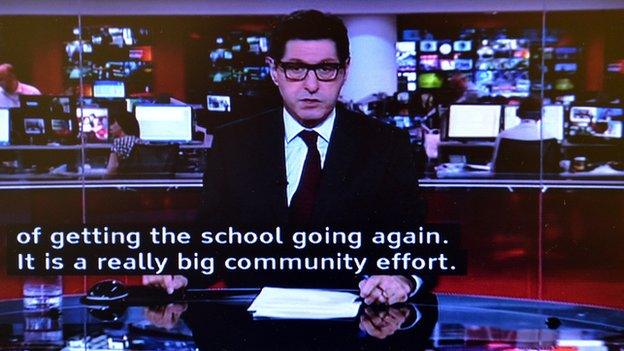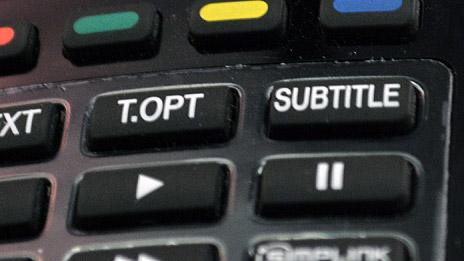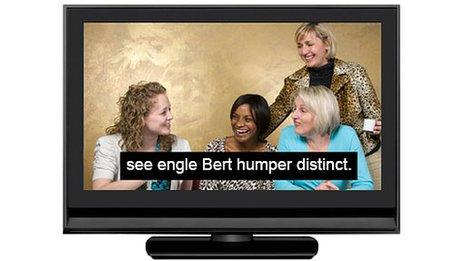British TV channels meet Ofcom subtitling targets
- Published

BBC News must provide subtitles on 100% of its programmes
The UK's domestic TV channels all "met or exceeded" their 2014 targets for providing subtitles, signing and audio description on programmes, according to a report by watchdog Ofcom.
The targets, for what are known as "access services", were set by the 2003 Communications Act.
The BBC must subtitle 100% of its programmes, audio describe 10% and provide sign language on 5%.
Channel 4 and ITV, STV and UTV must all subtitle at least 90% of broadcasts.
"To help people with hearing or visual impairments enjoy a choice of TV programmes, a number of broadcasters are required to provide subtitling, signing and audio description services," said Ofcom on publishing 2014's Television Access Services report, external.
"Of the 72 UK channels required to provide these services, all met or exceeded their targets for 2014."
'Frustrating and slow'
Last year, the broadcasting watchdog began a regular audit of the quality of subtitles, following complaints by viewers about inaccuracies and subtitles which were delayed or had frozen or disappeared.
One report said poor subtitling on live programmes could often make viewing "frustrating" or even "unwatchable".
It cited mistakes such as Star Wars character Princess Leia being called "Present Cesc lay ya", lemon transcribed as "lepl on" and the phrase "be given to our toddlers" translated as "be given to ayatollahs".
Another report published in June 2014 said subtitles were often too slow and lagged far behind speech on live programmes.
Ofcom found the average delay between speech being heard and the corresponding subtitles appearing on screen is 5.6 seconds - almost double the recommended maximum of three seconds.
- Published29 January 2015

- Published30 April 2014

- Published16 October 2013
